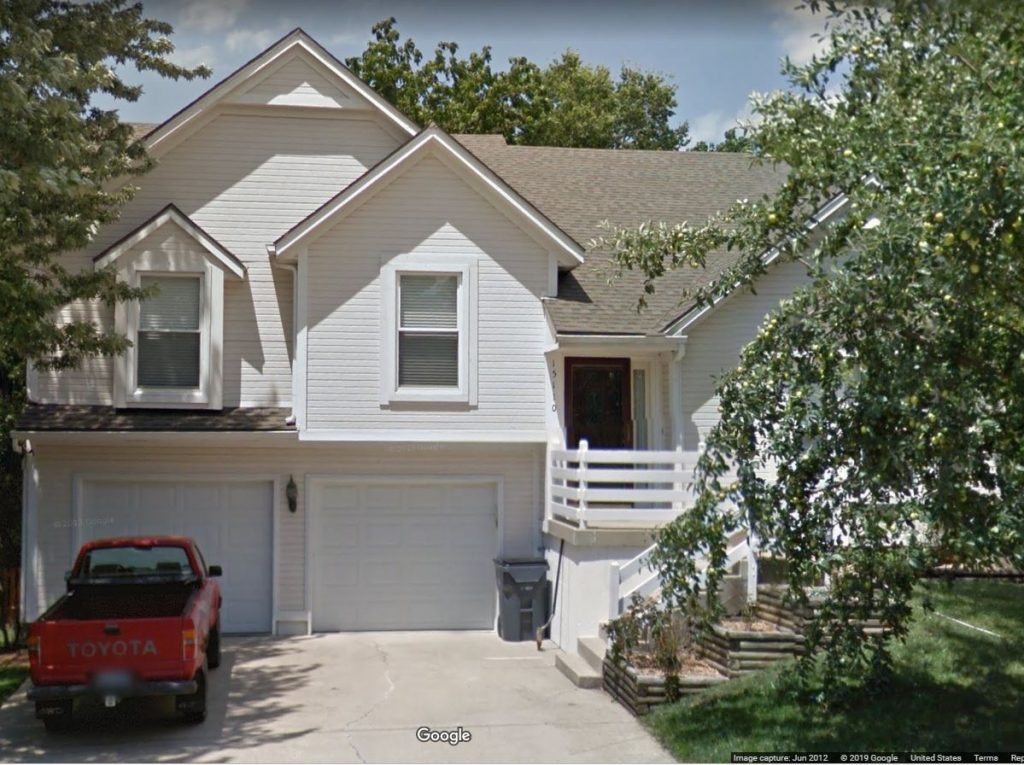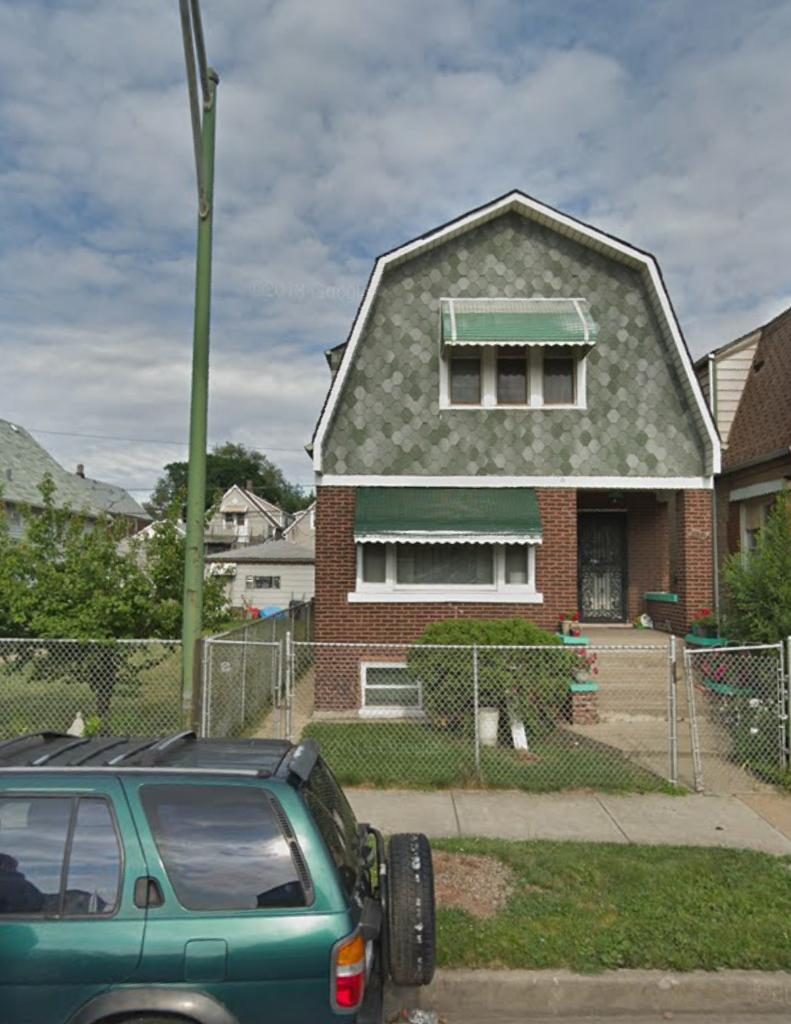
Present Day in Kansas City
When the doorbell rang, Mason was busy cleaning the house as he had always done on his day off. He opened the door to a slight, young woman bundled up against the Kansas winter. He didn’t usually have unanticipated visitors, especially in his quiet cul-de-sac nestled in suburban Olathe.
“Hi, my name is Lindsay. I’m with 41 Action News. I’ve heard that there is an unlicensed, homeless shelter that is operating out of the church behind your home. Have you seen anything suspicious lately?” she inquired.
Mason had actually seen some unusual activity in their family-oriented neighborhood: a drunk man passed out on a neighbor’s porch, one of the homeless had gotten aggressive when the neighborhood refused to let him shovel driveways for cash–but Mason didn’t mention that. He wasn’t one to be in the spotlight.
“No, I haven’t particularly seen anything out of the ordinary,” Mason stated.
“Well, if you happen to think of anything feel free to give me a call,” Lindsay stated handing Mason her business card.
“We are looking for people in the area to do interviews if they know information about the homeless shelter and its effects on the neighborhood.”
Mason thought for a moment, Oh, well interviews? Liam would love that.
While Mason was a bit introverted and content to keep to himself, his partner, Liam, was the opposite–an extrovert who relished the spotlight and loved to embellish. The perfect candidate for a conservative Kansas news station story about the homeless infiltrating the suburbs.
“Actually if you’re looking for people to interview my husband should be home around seven tonight. He’s more up to speed on the community on-goings and I’m sure he would love to talk to you.”
Mason watched the reporter’s eyes light up as if he’d just told her she’d won a lump sum of cash. He thought, Oh, yeah. I bet this seems great for her. Gays in the suburbs of conservative Kansas. Guess you don’t see that on every block.
Lindsay said emphatically, “I’d love to speak with your husband! Here’s my card. Make sure he calls me the moment he gets home.”
“I’ll be sure to do that. Have a great afternoon, Lindsay,” Mason said as he closed the front door. Turning around to go upstairs, he couldn’t help but feel as though he was something to be gawked at after his interaction with the reporter.
He began to wash the dishes as he peered out the frosted kitchen window and pondered his life in the past few months. This was different than Chicago, but it was a silent different. It was verbal attacks as he grew up, maybe a beer thrown at him, but here he dealt with the silent, passive abhorrence.

MIllie Leonhard. Mason’s Southside Home, Chicago. Google 2018. Copyright Free.
Growing up Gay
“Andrew, turn up the music! We need to get pumped for the club!” Mason said.
It was that time of year in Chicago when the weather was finally turning from a frozen tundra to where life could begin to creep back into the streets. Mason and his friend, Andrew, were cruising down a bumpy road on the Southside with all the windows down, letting the spring breeze guide their mood as they made the trek to Boystown. Upon Mason’s request, Andrew turned up the Britney Spears song, “Hit Me Baby One More Time”, and the two of them began to sing along. Apparently, this was the wrong choice.
As they glided up to a red stop light, a large SUV pulled up beside them and four men jumped out.
“The fuck you fags think you’re doing playing that music around here?”
Before the seventeen-year-old boys had time to think, the men jumped on the car from the passenger and driver’s side. The car began to rock and they were reaching for the boys.
“Drive! Drive! DRIVE,” Mason said emphatically. Andrew pressed the gas pedal all the way to the floor running through the red light. The men fell away and became smaller and smaller as the boys looked back. With their hearts racing, they looked at each other with wild eyes. No more playing Britney Spears that loudly on the rough Southside.
Growing up Latino
How could he forget? How? It was the midterm for crying out loud!
Mason had just gotten back to his apartment after a long day. He plopped down on the couch and propped his feet up on the coffee table gearing up to watch a guilty pleasure: Friends. All of the sudden it came racing back to him. FUCK. The midterm.
His feet were on the ground before he knew it and he was racing to his desktop to figure out what the essay was supposed to be about. Culinary school usually focused on execution but this time he needed to write. It was already almost midnight but the paper was due at ten in the morning. He had no time to waste. Mason stayed up all night and when the sun was coming up over the lake, he was typing the last page. Groggy as hell, he trudged to class with the paper in hand.
As he walked in and set the paper down on the front desk his instructor said, “What’s this?”
“That’s my midterm,” stated Mason.
“Oh, well it’s not due for another week. Are you ready to turn it in?”
Damn it. I mixed up dates, Mason thought. But he was confident in his work. “Yeah, it’s ready.”
The instructor accepted the paper and told Mason he would have it graded in a few days.
A few days later, the instructor came into class and told everyone that Mason had received an A on his midterm. If they would like to see what an A paper looked like, he would leave the paper out on the desk so they could take a look. After many of the students had taken time to go over the paper, one girl decided to speak up.
She raised her hand and stated, “Well, I don’t understand how he could get an A if he doesn’t even know how to fucking speak English.”
Mason, shocked, immediately felt the red hot pulse of embarrassment envelop his being. I earned that grade. I worked my ass off. I stayed up ALL night. So what if I don’t sound like you, Mason thought.
However, Mason had to put up with this reaction multiple times; he just wanted to fit in. This wore him down until he decided he would work to get rid of his Latino accent.
He regretfully succeeded.
Remembering What We Built
Liam came home to find Mason scrubbing the floors vigorously, which Mason usually will resort to doing when he’s stressed out. He could tell that something triggered him.
“Honey, how was your day?” Liam asked.
“Fine. Some reporter came by. She wants to know about the homeless shelter. Thought maybe you’d like to talk to her,” Mason stated without looking up.
“Hey, are you okay?”
“It’s just different here, Liam. I know this is your hometown. Sometimes it’s hard to deal with. It’s so different than Chicago. They judge silently…they find ways to make me feel as though I’m wrong for who I am,” Mason said as he slumped back against a cabinet.
“Hey, do you remember when those assholes followed us, called us fags, and threw beer bottles at us when we were walking home in Chicago one night?” Liam inquired softly while climbing down to meet Mason on the hardwood.
“Yeah.”
“Remember what happened? I wanted to run. You told me no. You said we needed to keep walking and don’t look back at them,” Liam said.
“And we haven’t looked back. We have pushed forward. No matter who told us that we were wrong,” he continued. At that moment, Liam started up their home sound system with Mason’s favorite song, “In My Feelings” while he grabbed Mason’s hands and pulled him to his feet. Then, he began to sing along loudly. Mason looked at Liam, cracked a side smile and laughed, letting go of his worries.
Mason and Liam built a home. Unapologetic, they built a loving relationship. More often than not, people have been judgmental of their differences, and the world may not change for them. Mason thought, I am not everyone’s cup of tea, and I’ve learned to be okay with that.

